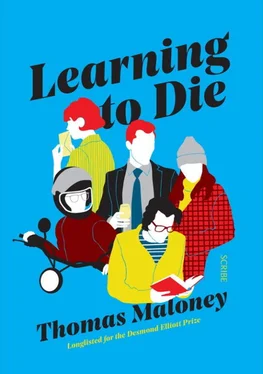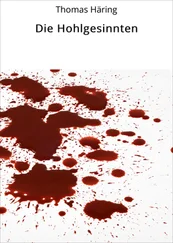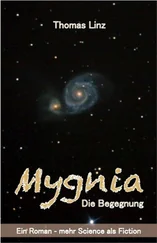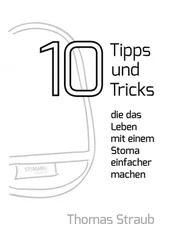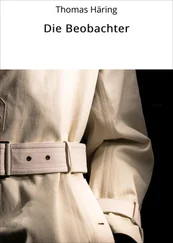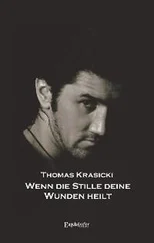Natalie has gone to the supermarket. They’ve always shopped together but he’ll only slow her down. He, blitzkrieg shopper, round in seven minutes, expert judge of the fastest queue, will now slow her down.
The crash was an accident, he keeps assuring her, but she doesn’t quite believe him. ‘Promise me you wouldn’t,’ she said. ‘Not without telling me. Not without—’ She wept; he promised. I admit I was riding carelessly, he said again, but it was an accident.
Death is a bird of paradise: we all know what it is, but it can be many different things that aren’t at all alike.
The vase on James’ desk is nearly dry, and alstroemeria petals lie scattered among the abandoned plates and cups. One has fallen into the open pot of jam, another clings to its sticky edge. When you sit here, she said, feeling lonely, I want you to remember our little breakfast. Yes, he remembers it. The desk a crime scene. As his head and heart begin to clear, he feels not a trace of anger towards Brenda. You might as well be angry with a cornered leopardess for lashing out. Never love a wild thing.
As for the novel’s destruction — that he might or should rewrite it does not even occur to him — since he woke up in the hostel this has lost its horror: a tragic twist is only really sad the first time. Now it’s a simple fact in the sordid, inconsequential non-bibliography of James F. Saunders. Fitting, that even its tragedies disappoint.
The horror is rather in the drastically altered landscape of his conscience. His face twitches with disgust at the thought of Project Q. He wallows in the reproaches of Brenda’s warmth, optimism and guileless generosity. Where is she, his accidental soulmate? Where is she now?
‘Oi! James! Get down here!’ It’s Rob — Hugo’s dad — below the window. James gets up slowly, mechanically descends the stairs and opens the door. Rob is wearing his cords and country check and has a sneer on his face.
‘You really are a worthless shit.’
James stares at him blankly. Tell me something I don’t —
‘Do you know how old my son is? Well?’ James casts his mind into the distant realm of last week and last month.
‘Six, I think,’ he murmurs.
‘That’s right. Six years old. When you talk to a six-year-old boy, you talk about pirates and dinosaurs and Kung Fu fucking Panda. You do not talk about loneliness and death and whatever fucked-up crap is in your miserable, retarded head.’ James feels a bland relief; abuse from a hypocrite, that he can take. ‘You won’t be getting another penny out of me,’ continues Rob, ‘and I’ll make sure everyone here knows just what a disturbed, pathetic creature you are. Christ — look at you. What was I even thinking, leaving him with you?’
Lacking the desire even to communicate his indifference, James moves to close the door but Rob stops it with a mud-splashed suede boot.
‘One more thing. Hugo asked me to give you this.’ He holds up a dirty black sack with something heavy in it. ‘He found it on the beach. He says it’s yours. You could think of it as a goodbye present. Enjoy!’
James takes the sack without a word, carries it upstairs, drops it in the corner of his room and tries to ignore it. There doesn’t seem to be any point in opening it. So he’s lost Hugo too. The solemn, big-headed boy was his largest source of income. Also, it so happens, his best friend. His counsellor. Truth is none the wiser for being old. Gone now. In for a penny.
After a while the sack’s forlorn presence becomes overwhelming. He reaches into the wet plastic shroud, lifts out the laptop carcase and lays it on his desk. There is water behind the cracked screen, which flaps on its hinges without resistance; the keyboard and the various sockets are caked in wet grey sand; every surface is streaked and mottled by a sheen of salt. Even though it looks and smells precisely like Hardy’s deadest thing, James cannot stop his hand travelling to the power button, which no longer yields to a push. Just above the screen, the inch of red embossing tape he stuck there ten years ago is somehow still clinging on, still announcing its one-word command in clear white capitals.
‘ INCIPE .’ is what the tape says. Begin. But it doesn’t matter that Steinbeck’s dog ate one of his drafts, or that John Stuart Mill’s stern father routinely tossed his son’s first attempts into the flames. For James, incipe signifies nothing. He flicks off the tape with his fingernail and drops the stinking wreck into the rubbish bin.
‘Poets have the feelings of common men.’
Montaigne
Natalie Mock always used to know right from wrong. The quandaries presented in novels and films; the behaviour of boyfriends; government policies; the responsibilities of multinational corporations; how to remedy injustice. She argued with friends, held her ground and usually won them over. Dan asked her for advice. ‘I trust your instincts,’ he would say.
In recent years, her instincts have wilted. She couldn’t even decide how to vote at the last election, not, as some of her colleagues asserted, because all the parties were alike, but because she simply couldn’t judge whose approach was the best. For every well-meant intervention, an unforeseen consequence. Is SmartAid, on balance, helping Africa? She hopes it is, but she’s no longer sure. Should you bail out the borrowers or the savers? Protect the fishing communities or the dolphins? Is she a good person? Is she doing the right thing?
As she helps Dan up the stairs and they get ready for bed, she twice seems to feel a sort of pelvic twitch, an awakening, a latent treachery that she tries to ignore.
Brenda stands on the hulking summit of Carn Eige, one of the country’s highest but least known peaks, and taps the tip of her ice axe against the trig’s grotesque armour of hoar frost. Above, around and below her, the cloudscape shifts. Small, sharp details appear briefly between gulfs of nothing: silhouetted cairn on the neighbouring peak, shore of the angry black loch far below, feeble yellow hole-punch of the sinking sun, patch of scoured rocks that marks the way down. The wind shoves and snatches at her body and scalds her face.
This is the tenth and highest of the twelve tops. She’s been walking for eighteen hours with barely a rest, by bright moon and impotent sun, and has four or five hours to go. She’s seen nobody. The usual neat black rucksack is not on her back — she has no stove, no food, no map, no phone. Only her axe and the contents of her pocket: a pill bottle, a knife and a small forked stick.
Love — men — boys — what was she thinking? This empty world, this world of abundant silence, is her plenty, her pleasure and her satisfaction. There is relief — even elation — in the confident resolution that she will never again allow herself to fall in love.
She sets off down the narrow spur of snow in bold heel-biting strides. A cloud sweeps over and she loses sight of the ground ahead just as the wind, now behind her, bats her skittering down a sloping sheet of ice. Her arms fly up and she regains her poise, only for another gust to swat her off her feet. She feels acceleration in her gut, and rolls hard onto the singing axe. Its pick judders madly on the ice, breaks loose, sings again, skitters and finally sticks, wrenching her arms upward. She comes to rest with her hands numbly clinging, face crammed hard into snow like broken glass.
A tiny black speck, barely adhering to the white mountain’s breast, insignificant, redundant — now still, now shaking in silent sobs, now still.
The Box is heading for a flat first quarter. Stocks have been raging, but Mike only just got long — he missed the rally. January’s profit would have been bigger if he hadn’t forgotten to reset the virtual dials he fiddled in December. He remembered in February, cranked up his leverage and duly handed back all the year’s gains. Banal. Like a dodgem car with no steering. If this was entertainment he’d ask for his money back. Instead, it’s his career.
Читать дальше
